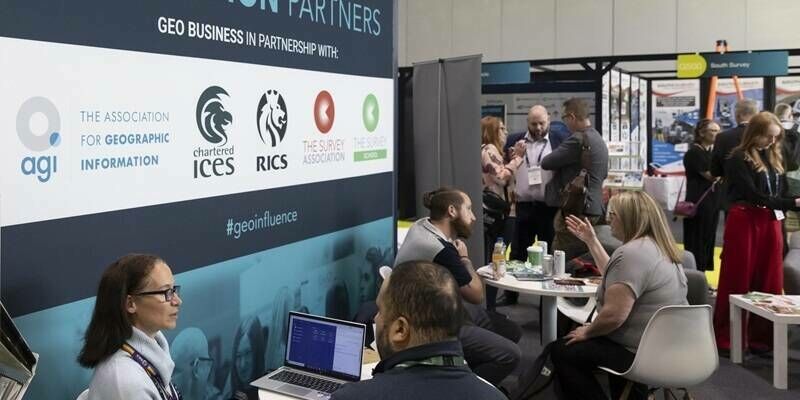Sixty-nine per cent of respondents to a Prospect union survey said uncertainty about the timing and impact of the Brexit process had impacted negatively on their organisation’s ability to fulfil ongoing functions and plan or undertake long-term projects.
Prospect represents 50,000 scientists and engineers across the public and private sectors.
The survey, released to coincide with the launch of a booklet spelling out the implications of Brexit for funding, collaboration and skills in UK science, technology, engineering and maths (STEM), reveals strong concerns about Brexit among STEM professionals.
The booklet, which reinforces the case that many of the world-leading programmes in which the UK is involved are just not scalable to a national level, will be launched on Tuesday 7 March in the House of Commons.
Scientists and engineers from the British Antarctic Survey, European Medicines Agency, National Oceanography Centre, Science and Technology Facilities Council, Rutherford Appleton Laboratory, Culham Centre for Fusion Energy and Sellafield will talk about how Brexit will impact on their work and their lives.
Mary Creagh MP, Chair of the Environmental Audit Committee said: “The UK gets much more out of EU research funding than it puts in. UK science has benefited from collaboration with European research partners.
“The Environmental Audit Committee, which I chair, found that this sharing of environmental knowledge has provided significant benefits to the UK environment over the last 40 years. We have called on the Government to replace EU funding for research after we leave, and give clear commitments about how UK scientists can continue to work with our international partners to tackle the great environmental problems of our age, which do not respect national borders.”
Prospect’s survey found that the vast majority of respondents (86%) are dissatisfied with government preparations for life outside the EU. Just 7% are satisfied.
- More than six in ten (64%) said they feel less secure in their employment since the EU referendum.
- Less than one quarter (23%) are confident that their organisation has the staff and skills to inform and support government negotiations on Brexit and take on new responsibilities that Brexit might bring.
- Looking ahead, 77% of respondents see continued access to the single market as a priority. Eighty per cent prioritised freedom of movement and 90% wanted guaranteed rights for EU nationals to stay in the UK.
- More than one in ten (11%) are planning to leave the UK up to and after Brexit, with a further 22% of STEM professionals not yet decided.
Prospect deputy general secretary Sue Ferns said: “Continued uncertainty for our science funding and collaboration is not neutral. It damages relationships day-by-day and brings a high emotional cost.
“The government must make tangible commitments to end uncertainty and set a positive path to future economic success.”
As one Prospect member said: “Overall there is immense anger among the scientific community, including UK citizens”.
Prospect is campaigning for:
- guaranteed rights for EU nationals already working in the UK to remain here
- continued international mobility for scientists and engineers, including for UK citizens to work in other EU countries
- assurances that the UK will not exit Euratom (the European Atomic Energy Community), at least until equivalent provisions have been put in place
- assurances about funding after 2020
- early clarity about the UK’s relationship with the EU (and other countries) to provide assurances to international professional networks and mitigate against the UK being frozen out of collaborative proposals
- strong repudiation of incidences of racism and xenophobia wherever and whenever they occur
- engagement with stakeholders in developing a long-term strategy for UK STEM.
Extracts from the booklet are pasted below.
“The feeling is that the government is using people as bargaining chips in their negotiations with the EU.”
Professor Dr Carsten Welsch, Head of the Accelerator Physics, University of Liverpool
“If we lose EU funds, it will be a massive blow to science. I worry that scientific community will lose impartiality because we will be more dependent on commercial funders.”
Margaret McKeen, research scientist, James Hutton Institute
“Satellite data are crucial for weather and climate prediction. It takes collaboration and investment between the best international experts. Without it, climate modellers like me would not be able to produce the most skillful predictions.”
Dr Chris Wilson, climate scientist, National Oceanography Centre
“While the UK is promising to continue funding current projects and those granted before the UK leaves the EU, it cannot provide this funding stream on its own, nor will such funding be easily generated through additional collaborations outside the EU framework.”
Dr Amelie Kirchgaessner, atmospheric scientist, British Antarctic Survey
“Drilling and measuring major Antarctic ice cores is expensive, and logistically complex. It benefits hugely from cross-European collaboration. The prospect of Brexit has implications for how ice core science is done in the UK. It has also created uncertainty about whether we should commit time and resources to writing new EU proposals.”
Dr Louise Sime, paleoclimate modeller, British Antarctic Survey
“UK scientists have a strong international reputation and research, knowledge, and teaching are a major export. I do not believe the UK government values this enough.”
Dr Lucy Bricheno, National Oceanography Centre
“We in the UK have benefitted heavily from international collaboration, and the shared European vision of conservation. EU law has been central to our environmental prototection…I worry that, outside the moderating influence of the EU, the countryside we love will lose out to short-term financial pressures.”
Julia Coneybeer, planning specialist, Natural England
“In terms of recruitment, it is well known that UK universities teach to a very high standard and as such attract students from around the world. We have been able to recruit some excellent young engineers from across the EU and offer them a rewarding placement experience prior to recruitment.”
Toby Cushion, chemical engineer, Sellafield
“Our entire organisation relies on EU funding, we work with the Eurofusion Consortium, and receive funding from Euratom. JET itself is a European facility by definition.”
Unnamed engineer, Culham Centre for Fusion Energy
“Whether the European Medicines Agency can stay in London appears doubtful. Currently, we are told no, but I guess we will be a pawn in the negotiations. If we don’t, it may influence industry to seek alternative places to operate.”
Unnamed researcher, EMA
Prospect’s survey was carried out over two weeks in early February. It was completed by 2,758 members – of which 11% work in science, technology, engineering and maths.
Subscribe to our newsletter
Stay updated on the latest technology, innovation product arrivals and exciting offers to your inbox.
Newsletter

